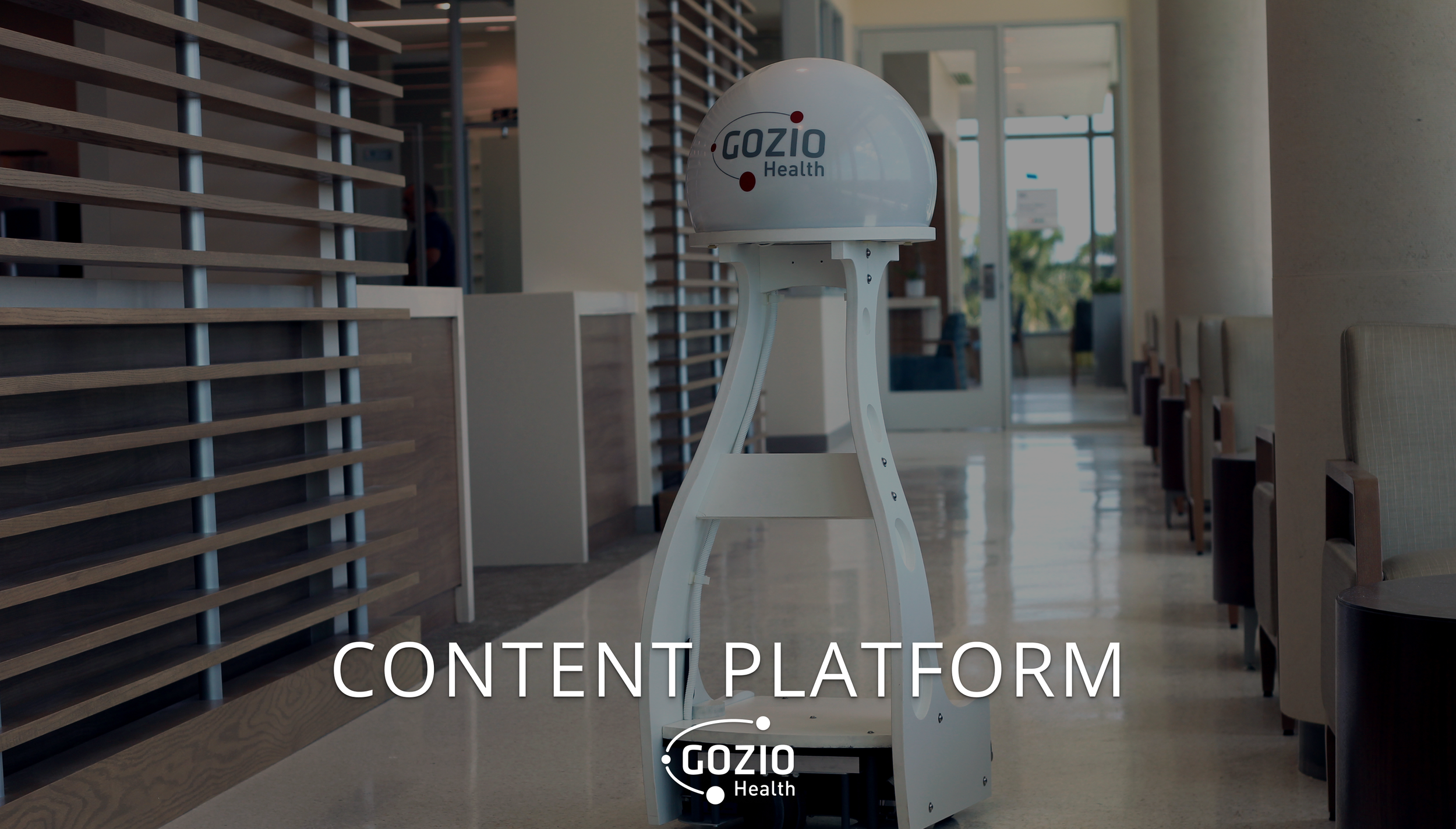PROJECT SUMMARY
Gozio builds mobile wayfinding apps that help hospitals improve the patient experience. But after years of growth, its original CMS, designed for small healthcare networks, couldn’t keep up with the needs of larger systems. In addition, non-technical hospital teams struggled to update content, creating bottlenecks and constant design requests.
I led the redesign of the CMS into a flexible, scalable platform with template-driven layouts and simplified editing. The new system gave marketing teams more control, cut homepage design requests by 62% in the first month, and positioned Gozio to better serve its expanding customer base.
Goals
Create a scalable system for networks large and small
Address design and technical debt
Solve usability and accessibility issues
Contributions
Led design efforts for new content management platform
Established design processes
Created proactive user feedback cycle
Research
Upon arriving at the company, I noticed Gozio lacked a formal feedback loop for user validation. Most feedback from users occurred post-launch in an ad-hoc style.
To better understand Gozio users, I spent much of the first month interviewing the users of CM from different healthcare systems. (Some of these customers also later offered feedback as I worked through different concepts for the platform.) Their feedback helped our team identify the following problem themes:
Navigation and search
System setup and design (customer onboarding)
System messaging and documentation
Content
Content flexbility
Content editing
Location grouping
Location visualization
Activity log
Content hierarchy
Routing and mapping issues
Explorations
When exploring concepts for CM, there were a number of different approaches to consider. I explored different navigation structures, POI groupings and user flows for different editing paths.
Navigation patterns
Location editing
Design
While working on early explorations, the mobile team was working on search improvements that required heavy CM support. We made the decision to start developing this new functionality on the new platform, rather than building on the old infrastructure. This allowed our team to build the foundation for the next-generation of CM and test some of the new designs in the real world. As I worked through the design for different sections within CM, this feedback was immensely helpful, especially for the editing of locations/POIs (the largest aspect of the redesign).
Navigation
After testing some of the above navigation patterns, we landed on two primary navigation components: app bar and sidebar menus. Both of these are persistent on the screen. The sidebar helps navigate to different sections or profiles of the content manager while the app bar is contextual to the page on which the user is working.
Categories
Categories helped better define groupings of POIs within CM, allowing users to quickly update groups of content. Additionally, this feature also helped improved overall search results and created easily accessible groupings for discovery tools within the app, like the explore panel.
Explore panel programming
One of the most-requested features from customers was better visualization of content changes. We piloted this preview idea with explore panel programming. The explore panel allows app users to discover different locations within a network or specific hospital campus. This programming feature within CM allows customers to manage these groups of locations and alternate between two established template styles for the explore panel. This pattern was later reused for the bottom navigation bar and the dashboard.
Team
Design: Will Linto
Development: Jim Tsai, Richard Livolsi, Eric Ching, Jovi Jovanelly
Product: Dennis Keller



















